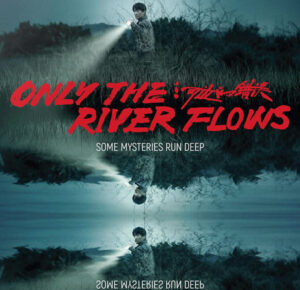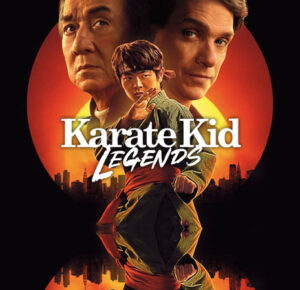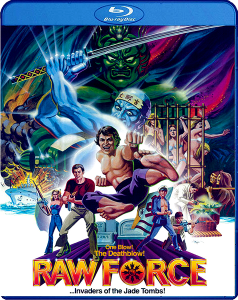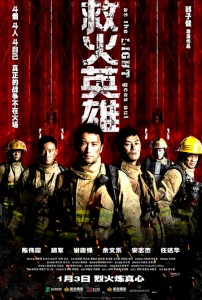
Jimmy Wang Yu 4-Film Collection | DVD (Shout! Factory)
It’s almost that time of year again – where we sit down to eat with family and friends to celebrate Thanksgiving.
It’s a time for gratitude. It’s a time for celebration. It’s a time for peace. It’s a time for reflection. It’s also a time for to check out this month’s latest roll of new Blu-ray & DVD releases – handpicked by cityonfire.com!
The month of November brings Bruce Lee, Donnie Yen, Jimmy Wang Yu, The Expendables, a Samurai Cop, a Giant Turtle, some Nazi Zombies, a group of Firefighters, an Interdimensional Police Force, a North Korean Spy and a whole lot more…
If you’re interested in purchasing any of the titles, we’re hoping you’ll click on our Amazon.com links to show your support towards cityonfire.com.
Bruce Lee Premiere Collection: November 11, 2014
Shout! Factory presents the Blu-ray set for the Bruce Lee Premiere Collection, which includes the following four films: The Big Boss (1971), Fist of Fury (1972), Way Of the Dragon (1972) and Game of Death (1978). Also included are extra features for each individual title. Please note: This new set includes only the films mentioned above. If you’re interested in the collector’s book, the documentaries and the Bonus Feature DVD, the Bruce Lee: The Legacy Collection is still available.
The Gamera Collection: November 11, 2014
Experience The Gamera Collection on Blu-ray from Mill Creek Entertainment. This boxed set includes the follow titles: Gamera: The Giant Monster (1965), Gamera vs. Barugon (1966), Gamera vs. Gyaos (1967), Gamera vs. Viras (1968), Gamera vs. Guiron (1969), Gamera vs. Jiger (1970), Gamera vs. Zigra (1971), Gamera: Super Monster (1980), Gamera: Guardian of the Universe (1995), Gamera 2: Attack of Legion (1996) and Gamera 3: Revenge of Iris (1999)
Iceman: November 11, 2014
Well Go USA presents the Blu-ray & DVD for Law Wing Cheong’s Iceman, starring International martial arts icon Donnie Yen (Special ID). A remake of the 1989 film Iceman Cometh, Yen plays a Ming era warrior who, along with his three traitorous childhood friends, are accidentally buried and kept frozen in time. 400 years later, they are defrosted and continue their battle in modern times where they left off. Iceman also stars Eva Huang (Kung Fu Hustle), Wang Baoqiang (Lost in Thailand) and Simon Yam (The Thieves). Watch the trailer.
Batman – The Complete TV Series: November 11, 2014
Warner presents the Batman: The Complete TV Series (1966–1968) on Blu-ray & DVD (see photo). Wealthy entrepreneur Bruce Wayne (Adam West) and his ward Dick Grayson (Burt Ward) lead a double life: they are actually the crime fighting duo Batman and Robin. A secret Batpole in the Wayne mansion leads to the Batcave, where Police Commissioner Gordon often calls the Bat-duo with the latest emergency threatening Gotham City! Also included are the Batman/The Green Hornet cross-over episodes, featuring Bruce Lee and Van Williams (details here).
Covert Operation: November 11, 2014
Lionsgate presents the DVD for Covert Operation (aka The Borderland). Gabriel (played by 5-time World Karate Champion, Seydina Balde), a bounty hunter trapped in Asia, is promised his freedom in return for one final rescue mission. However, his mission takes a turn for the worst when he’s trapped between the border of China and North Korea. Covert Operation arrives from French director Mathieu Weschler and stars Seydina Balde (Danny The Dog, stunt performer in Casino Royale) in the lead role.
The Crone: November 18, 2014
Pathfinder Home Entertainment presents the DVD for Eisuke Naito’s The Crone. From the Producer of The Ring, The Grudge and Dark Water comes the macabre tale of three paranormal TV show hostesses Ayane, Nanami and Mayuko. These three girls are put to the test of ultimate fear when they challenge each other to visit an abandoned nursing home in the mountains. Determined to defeat each other, the girls stubbornly remain in the chilling location no matter what happens. The Crone stars Honoka Miki, Akiko Hoshino and Shiori Kitayama.
Travelers: Dimension Police: November 18, 2014
Pathfinder presents the DVD for Koichi Sakamoto’s Travelers: Dimension Police. From the director of Power Rangers, comes a sexy, aunthentic action movie, no questions asked. Actress/singer Nao Nagasawa, and actress/model Ayumi Kinoshita, star in a story of a beautiful female cop working for an interdimensional police force. She serendipitously crosses paths with her former partner-turned-enemy. They are forced to confront each other and their past, while investigating an multidimensional terrorist agency.
The Jimmy Wang Yu 4-Film Collection: November 18, 2014
Shout! Factory presents the DVD set for The Jimmy Wang Yu 4-Film Collection. This 4 film, 2 disc set includes One-Armed Boxer (1972), The Tattooed Dragon (1973), Beach of the War Gods (1973) and Man Called Tiger (1973). The Jimmy Wang Yu 4-Film Collection also features James Tien (Fist of Fury), Lung Fei (Master of the Flying Guillotine), Sylvia Chang (Slaughter in San Francisco), Feng Tien (A Better Tomorrow) and Maria Yi (The Big Boss).
As The Lights Go Out: November 18, 2014
Well Go USA presents the Blu-ray & DVD for As The Lights Go Out, an action-packed suspense drama written and directed by by Derek Kwok (Gallants). As The Lights Go Out stars Nicholas Tse (The Stool Pigeon), Shawn Yue (Legend of the Fist), Simon Yam (Iceman 3D), Hu Jun (Firestorm), William Chan (Triad), Bai Bing (The Viral Factor), Andy On (Special ID) and a cameo by the legendary Jackie Chan (CZ12).
The Expendables 3: November 25, 2014
Lionsgate presents the Blu-ray The Expendables 3, which will include the never-before-seen unrated edition of the film – featuring more action, more explosions, more fights – and a higher body count – everything fans have come to love in the franchise! Extras: Documentary; Featurettes: “New Blood: Stacked and Jacked” and “The Total Action Package”; Extended Scene; Gag Reel; Unrated Edition (131 minutes); and the Theatrical Version (126 minutes).
Samurai Cop: November 25, 2014
Cinema Epoch presents the Blu-ray for 1991’s Samurai Cop. Detective Frank Washington (Mark Frazer) and Joe Marshall (Matt Hannon) team up to take on the Yakuza in this 1991 cult classic. Watch the trailer. Directed by the late Amir Shervan (Killing American Style), Samurai Cop found a whole new audience during its midnight theatrical circuit and film festival re-release.
Shock Waves: November 25, 2014
Blue Underground presents the Blu-ray for 1977’s Shock Waves, direct by Ken Wiederhorn (Return of the Living Dead II). In World War II, the Nazi High Command ordered its scientists to create a top secret race of indestructible zombie storm troopers. No member of this horrific SS unit was ever captured by the Allied Forces and, somewhere off the coast of Florida, they have survived. Shock Waves (aka Almost Human or Death Corps) stars Peter Cushing, Brooke Adams and John Carradine.
Looking for new import releases?
If you’re looking for a new import release, please visit DDDhouse.com. The trusted retailer carries new and upcoming releases that are not yet available in North America.






















Be the 1st to Comment